10 Worst Foods for Seniors: Dietary Choices to Avoid for Better Health
Your dietary choices can greatly impact your health and well-being as you age. At Westmont of Santa Barbara, we recognize that not all foods support your vitality; some can jeopardize it. You might be surprised to learn which common items could harm your health and why they deserve a second thought. Understanding these risks is the first step toward making better choices for a healthier life. So, what specific foods should you steer clear of to enhance your overall wellness?

Raw or Undercooked Eggs
Avoiding raw or undercooked eggs in your diet is essential for your health. As you age, the risk of food poisoning increases, and consuming these eggs can lead to severe complications like sepsis.
Raw or undercooked eggs often harbor harmful bacteria, particularly Salmonella, which can cause significant distress for seniors. For individuals over 60, it’s vital to be aware of the foods to avoid after 60, and raw or undercooked eggs rank among the 10 worst foods for seniors.
Cooking eggs thoroughly eliminates harmful bacteria, making them safe to enjoy. Additionally, maintaining a heart-healthy diet is crucial for reducing the risk of chronic diseases that can arise with age. Opt for scrambled, poached, or hard-boiled eggs instead of dishes like homemade mayonnaise or sunny-side-up eggs.
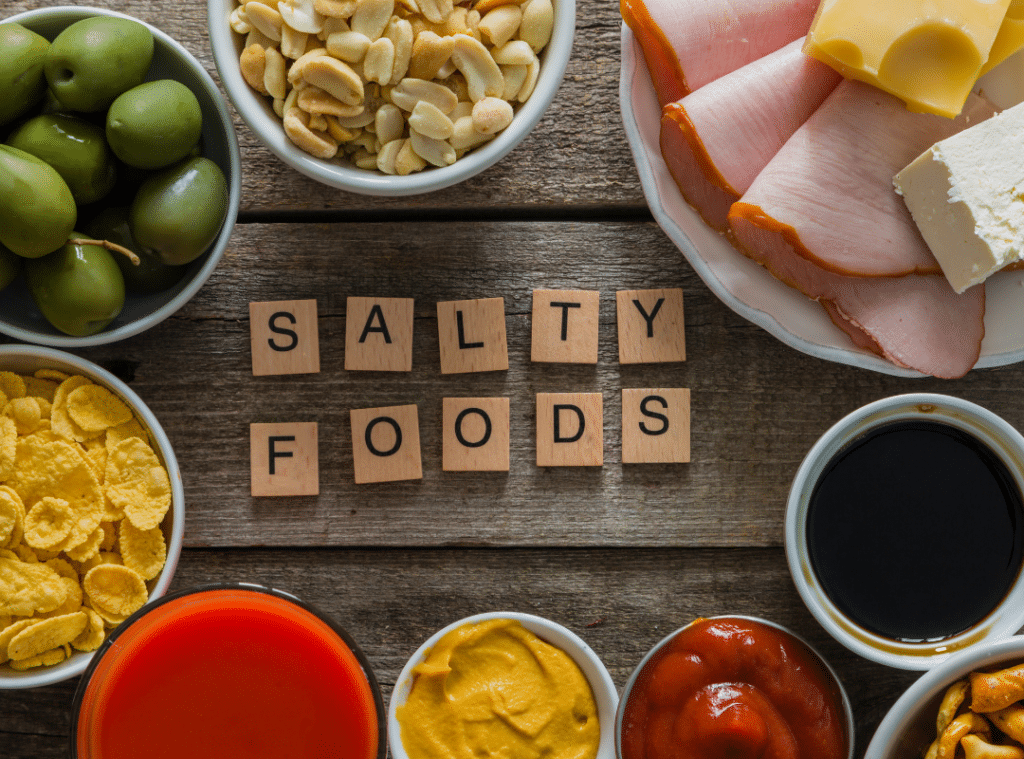
High Sodium Foods
High-sodium foods pose significant health risks for seniors and should be cautiously approached. Excessive sodium intake can lead to hypertension, increasing the risk of heart attacks and strokes.
As you consider the 10 worst foods for seniors to lose weight, be mindful of processed snacks, canned soups, and deli meats, which often contain alarmingly high levels of sodium.
The recommended sodium intake for seniors is lower than that for younger adults, so it’s essential to read labels carefully and choose fresh or low-sodium alternatives whenever possible. Personalized nutrition is crucial in helping seniors make informed dietary choices to maintain their health and well-being.
Foods to avoid after 65 include those that can elevate blood pressure or cause fluid retention.
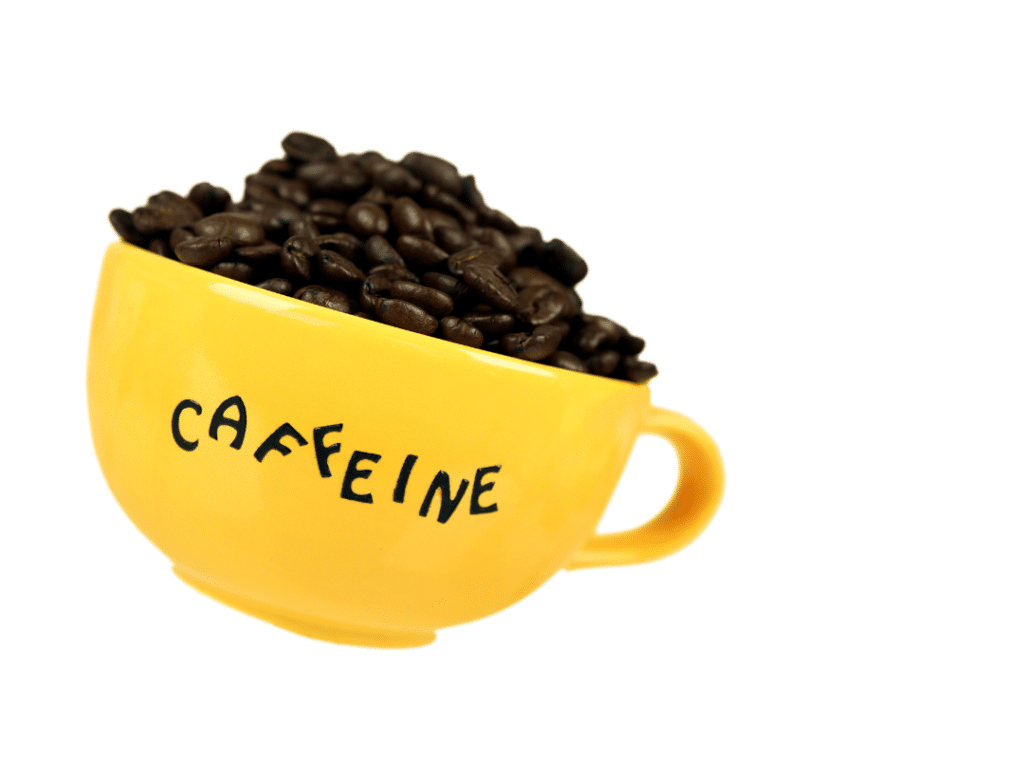
Caffeine
[Caffeine can pose unique challenges for seniors, as it may exacerbate existing health conditions. Consuming caffeine can worsen symptoms of heart disease and lead to increased blood pressure levels—two important issues that many older adults face. You might find caffeine in coffee, tea, and energy drinks, but it’s essential to monitor your intake as you age.
For those over 60, it’s wise to take into account the 10 foods to avoid after 50 that include caffeine-rich beverages. The stimulant can also interfere with your sleep patterns, which are already vulnerable in later years. Poor sleep can contribute to a decline in overall health, making it one of the 25 worst foods for seniors. Identifying underlying triggers of insomnia is crucial for effective management, and caffeine can be a significant contributor.
If you or someone you’re caring for enjoys caffeine, think about opting for decaffeinated options. This simple switch can help mitigate the potential negative effects while still allowing for a pleasant beverage experience.
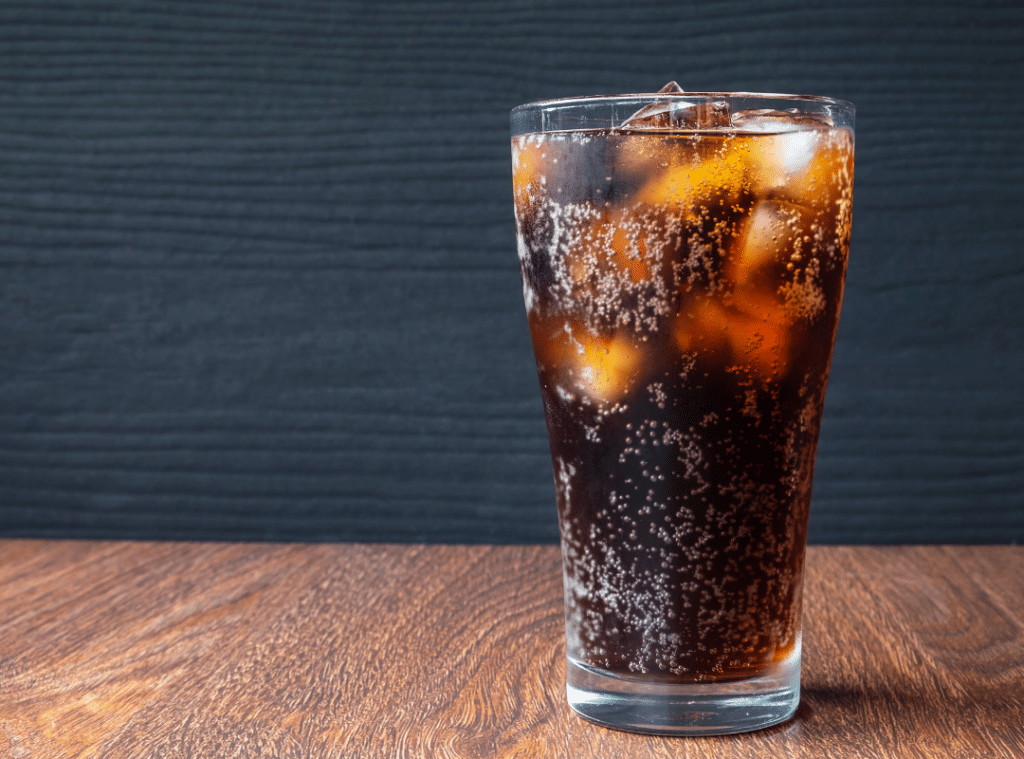
Sodas
Sodas can pose significant health risks for seniors, including increased chances of diabetes and negative impacts on dental health. Instead of reaching for a sugary soft drink, you might consider healthier alternatives like water or herbal teas to stay hydrated. Making these simple swaps can help you maintain better overall health and well-being. Additionally, choosing fiber-rich foods can further support digestion and prevent chronic diseases.
Health Risks Overview
Many older adults don’t realize the potential health risks associated with sodas, which are packed with sugar and caffeine. Consuming these beverages can lead to several health issues that are especially concerning for seniors. Understanding these risks can help you make better dietary choices.
Here are three key health risks linked to soda consumption:
- Increased Diabetes Risk: Regular intake of high-sugar sodas can considerably raise your risk of developing type 2 diabetes, a condition that can lead to serious complications.
- Dental Health Issues: The acidity and sugar in sodas can erode tooth enamel, leading to cavities and gum disease, which are already common concerns in older adults.
- Bone Density Loss: Studies suggest that high soda consumption may be associated with lower bone mineral density, increasing the risk of fractures and osteoporosis.
Awareness of these health risks can empower you to help others avoid sodas.
Encourage friends and loved ones to reflect on healthier hydration options, like water or herbal teas, to support better health outcomes as they age.
Making simple changes can lead to considerable improvements in overall well-being.
Nutritional Alternatives Available
Making informed dietary choices can greatly benefit seniors, especially when it comes to beverage options. Sodas, while popular, can pose significant health risks due to their high sugar and caffeine content. These ingredients are linked to increased risks of diabetes, weight gain, and even dental issues.
Instead of reaching for that can of soda, consider healthier alternatives that can still satisfy your thirst.
Water should be your go-to choice. It’s calorie-free, hydrating, and essential for overall health. If you’re looking for something with a bit more flavor, herbal teas can be a delightful option. They’re caffeine-free and can offer various health benefits, depending on your chosen type.
Try infusing water with fresh fruit slices like lemon, berries, or cucumber for a fruity twist. This not only enhances the flavor but also adds nutrients.
If you miss the soda fizz, consider sparkling water; it gives you that bubbly sensation without the added sugars.
Impact on Hydration
Consuming sodas can greatly impact your hydration levels, often leading to unintended consequences. While these sugary drinks may seem refreshing, they can actually dehydrate you over time.
Here are three significant effects of soda on hydration:
- High Sugar Content: Sodas are loaded with sugar, which can increase thirst and lead to more fluid loss as your body tries to balance its sugar levels.
- Caffeine: Many sodas contain caffeine, a diuretic that can cause your body to lose water, further contributing to dehydration.
- Acidity: The high acidity in sodas can irritate your stomach, potentially worsening feelings of dehydration and discomfort.
Instead of reaching for a soda, consider healthier alternatives like water or herbal teas. These options not only keep you hydrated but also support overall health.
Staying well-hydrated is essential as you age, helping to maintain cognitive function and physical well-being. By making small changes to your beverage choices, you can positively impact your hydration and quality of life.
Encourage your loved ones to follow suit for better health outcomes!
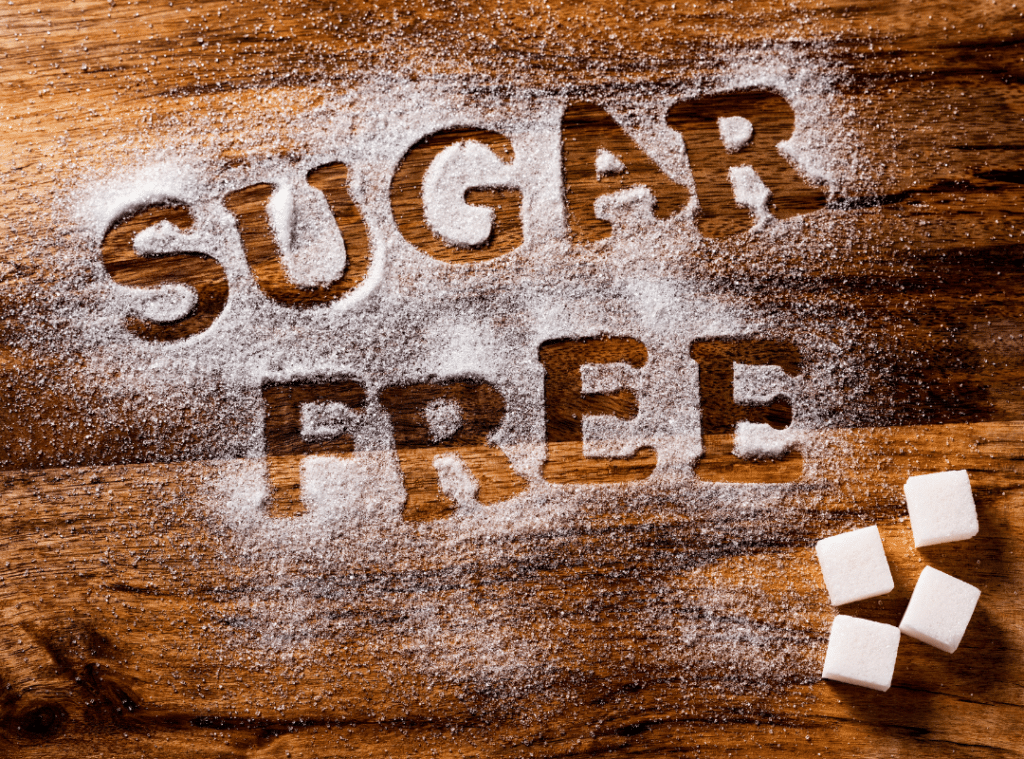
Sugar-Free Drinks
When it comes to beverages, sugar-free drinks might seem like a healthier choice for seniors looking to reduce calorie intake. However, these drinks often contain artificial sweeteners and chemicals that may not be as harmless as they appear. Evidence suggests some older adults might experience adverse reactions to these additives, including gastrointestinal issues. This can lead to discomfort and complications that you’d want to avoid.
Moreover, sugar-free drinks aren’t necessarily better for your health than sugary ones. Research indicates that consuming these beverages can still result in weight gain and metabolic challenges.
Instead of reaching for sugar-free sodas or flavored waters, consider healthier alternatives. While still containing natural sugars, whole fruit juices provide essential nutrients and fiber. Flavored water made from fresh fruits or herbs offers a revitalizing and nutritious option without the negatives associated with artificial sweeteners.
Ultimately, being mindful of your drink choices can greatly impact your overall health. Encourage seniors to prioritize hydration through natural options, ensuring they enjoy their beverages while avoiding potential health risks from sugar-free drinks.
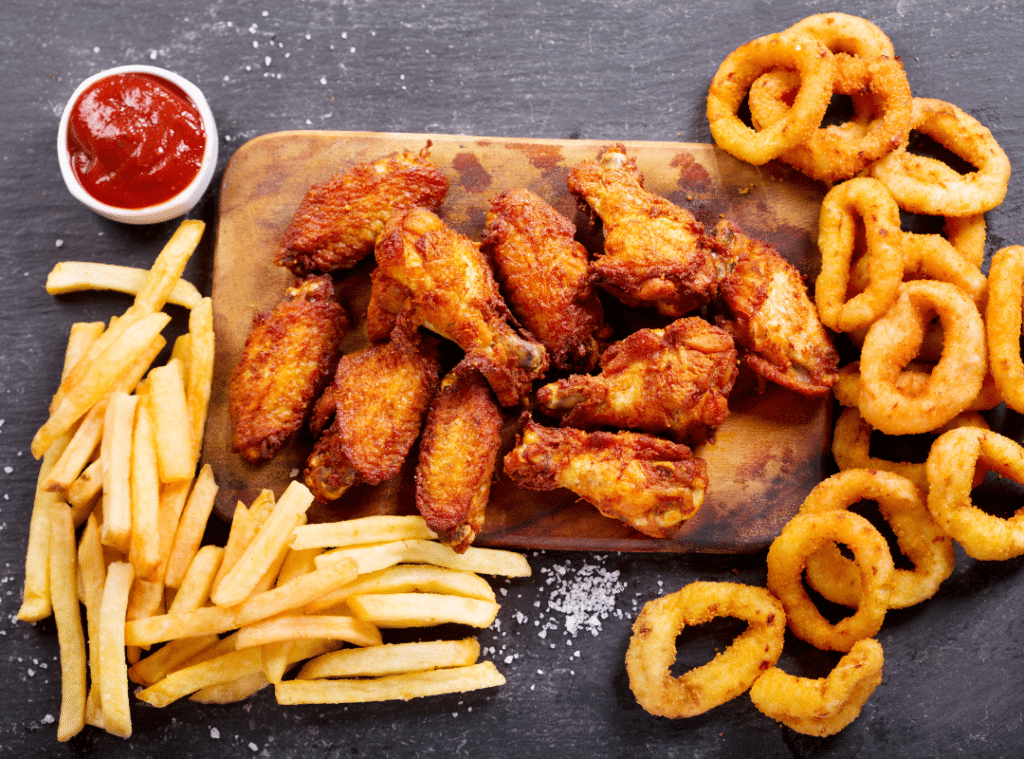
Fried Foods
Fried foods often seem tempting, but they can pose significant health risks for seniors.
These foods are typically high in unhealthy fats, which can lead to elevated cholesterol levels and increase the risk of heart disease. Additionally, their calorie-dense nature can contribute to weight gain, exacerbating existing health conditions like hypertension.
To help you make healthier choices, consider avoiding fried foods and opting for alternatives like baked or grilled options.
Here are three key reasons to steer clear of fried foods:
- High in Unhealthy Fats: Fried foods are often cooked in oils that can raise bad cholesterol levels, impacting heart health.
- Weight Gain: The calorie content in fried foods is usually high, making them a poor choice for those looking to maintain a healthy weight.
- Increased Health Risks: Regular consumption of fried foods can worsen conditions such as hypertension and diabetes, leading to serious health complications.
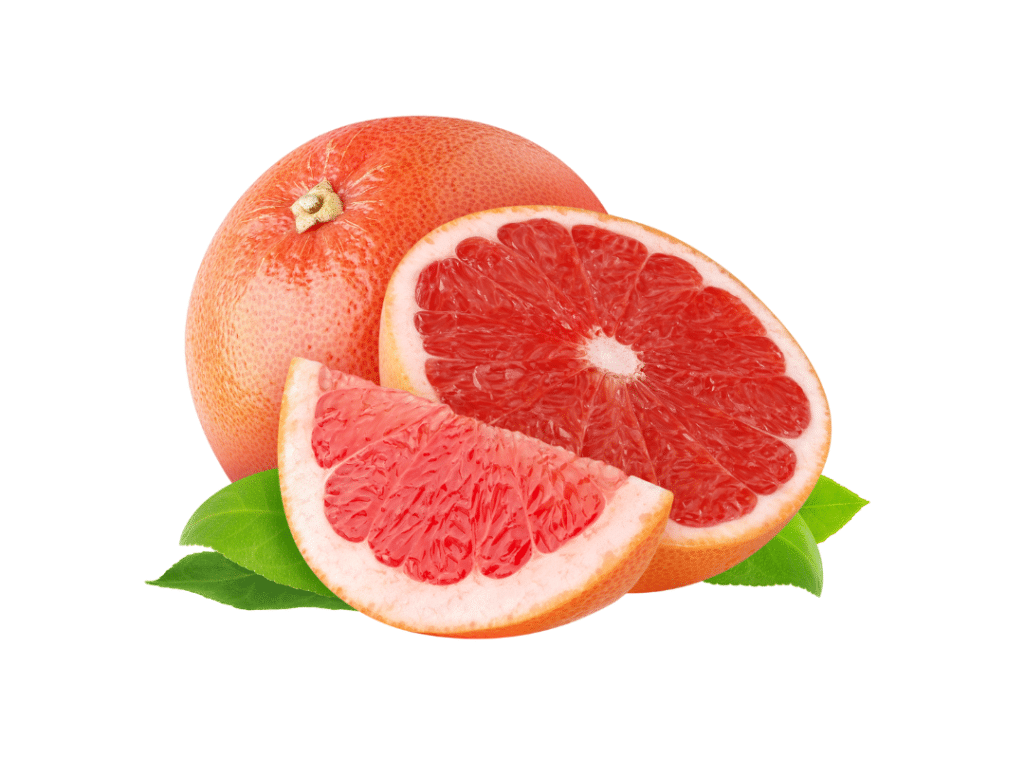
Grapefruit
Grapefruit may seem like a healthy addition to your diet, but it can pose significant risks for seniors, especially when it comes to medication interactions. The compounds in grapefruit can interfere with the metabolism of various medications, potentially reducing their effectiveness or causing harmful side effects. This is particularly concerning for seniors who often take multiple prescriptions for chronic conditions.
For instance, grapefruit can affect cholesterol, blood pressure medications, and even some antidepressants. If you’re caring for a senior or are one yourself, it’s essential to consult with a healthcare provider before including grapefruit in the diet. They can provide guidance on safe food choices that won’t interfere with necessary treatments.
Instead of grapefruit, consider other citrus fruits like oranges or tangerines, which offer similar vitamins and minerals without the risk of interactions. These alternatives can help maintain a balanced diet while ensuring that medications work effectively.
Always prioritize safety and health by being aware of how food choices can impact overall well-being, especially for seniors who may be more vulnerable to dietary risks.

Alcohol
Moderation is key when it comes to alcohol consumption for seniors, as it can greatly impact health and safety. While enjoying a glass of wine or a cocktail might seem harmless, alcohol can interfere with medication efficacy, increase the risk of falls, and lead to dehydration or liver issues.
It’s crucial to be aware of how alcohol affects your body as you age.
Consider these three important points:
- Medication Interaction: Alcohol can diminish the effectiveness of medications, which can lead to serious health complications.
- Increased Risk of Accidents: Alcohol impairs coordination and balance, making falls more likely—an issue that can have severe consequences for seniors.
- Dehydration: Alcohol is a diuretic, which can lead to dehydration, a condition that seniors may already be vulnerable to.
Given these factors, it’s wise to limit or avoid alcohol altogether.
If you’re looking for alternatives, consider non-alcoholic beverages such as herbal teas, sparkling water, or fresh fruit juices.
Staying mindful of your choices can help you maintain better health and safety in your golden years.

Undercooked Meats
Undercooked meats pose significant health risks for seniors, as they can harbor dangerous bacteria that lead to severe illnesses.
It’s essential to cook meat at safe temperatures to eliminate these risks and protect your health.
Instead of rare dishes, opt for fully cooked options like grilled chicken or baked fish for a safer meal.
Health Risks Explained
When it comes to your health, consuming undercooked meats can pose serious risks, particularly as you age.
Older adults are more vulnerable to foodborne illnesses, which can lead to severe complications like sepsis. Ensuring your meat is cooked thoroughly is crucial for your well-being and safety.
Here are three key health risks associated with undercooked meats:
- Bacterial Infections: Undercooked meats can harbor harmful bacteria such as Salmonella and E. coli, increasing your risk of food poisoning.
- Severe Illness: In older adults, foodborne illnesses can escalate quickly, leading to serious health issues, hospitalizations, or even death.
- Long Recovery Times: If you do fall ill, your recovery may take longer due to age-related factors, impacting your overall quality of life.
To protect yourself and those you care for, always opt for fully cooked meats.
Consider alternatives like grilled chicken or roasted vegetables, which not only provide safety but also contribute to a well-balanced diet.
Safe Cooking Temperatures
Achieving safe cooking temperatures is essential for preventing foodborne illnesses, especially for seniors. Undercooked meats can harbor harmful bacteria like Salmonella and E. coli, putting your loved ones at risk for severe complications. To guarantee safety, always cook meats to the recommended internal temperatures.
Here’s a handy guide to safe cooking temperatures for various meats:
| Meat Type | Safe Cooking Temperature (°F) |
| Poultry (chicken, turkey) | 165°F |
| Ground meats (beef, pork, lamb) | 160°F |
| Steaks, roasts, and chops (beef, pork, lamb, and veal) | 145°F (with a 3-minute rest) |
| Fish and shellfish | 145°F |
| Ham (fresh or smoked) | 145°F (with a 3-minute rest) |
Recommended Meat Alternatives
Choosing safe and nutritious meat alternatives can greatly benefit seniors, especially when considering the risks associated with undercooked meats.
Undercooked meats can harbor harmful bacteria, leading to serious health complications. To guarantee a healthier diet, consider these recommended meat alternatives:
- Lean Cooked Poultry: Chicken and turkey are excellent sources of protein and should always be thoroughly cooked to safe temperatures.
- Cooked Fish and Seafood: Opt for well-cooked fish like salmon or shrimp. They’re rich in omega-3 fatty acids, promoting heart health while avoiding the risks of raw seafood.
- Plant-Based Proteins: Foods like beans, lentils, and tofu provide essential nutrients without the risks associated with undercooked meats. They’re versatile and can be added to various dishes.
When preparing meals for seniors, it’s vital to avoid any raw or undercooked meat dishes.
Always prioritize fully cooked options to enhance safety and well-being. By making these simple substitutions, you can help guarantee that the meals you serve are both nutritious and safe, contributing to better health outcomes for seniors.
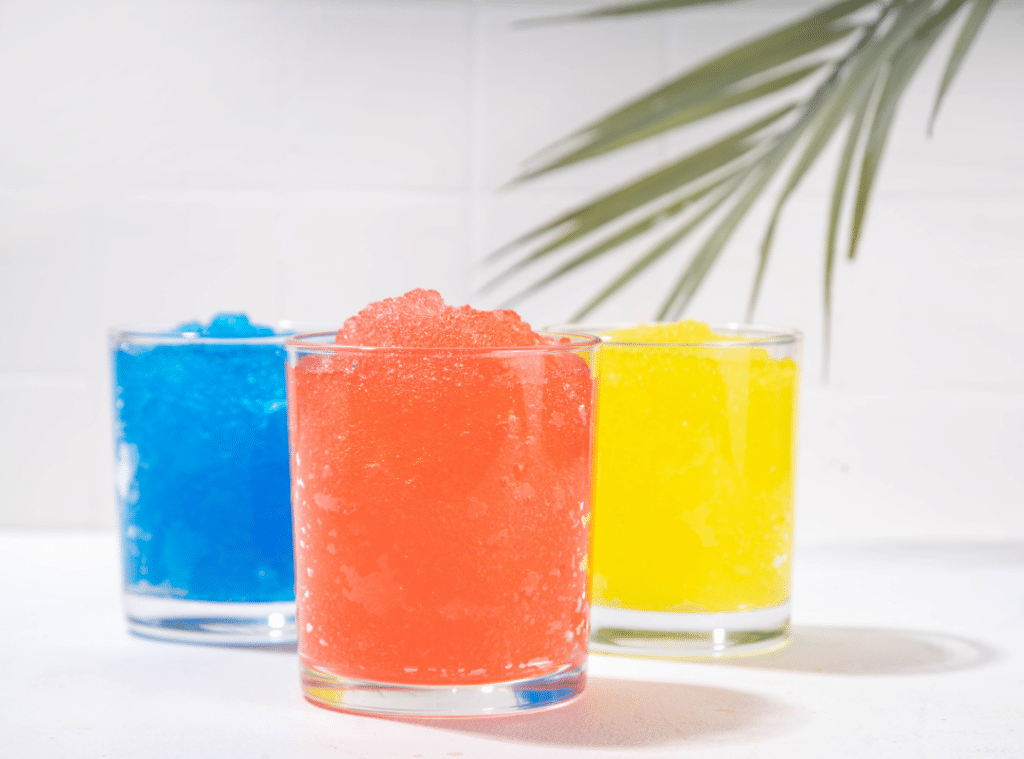
Sugary Juices
Sugary juices might seem like a revitalizing choice, but they can pose significant health risks for seniors. These drinks often contain high levels of sugar, which can lead to an increased risk of diabetes. Unlike whole fruits, sugary juices lack fiber, meaning they don’t provide the same satiating benefits or nutrients. Consuming these beverages regularly can contribute to weight gain, which is particularly concerning for seniors looking to maintain a healthy lifestyle.
Moreover, excessive sugar intake can exacerbate heart disease and other chronic conditions. If you’re caring for an older adult, it’s crucial to encourage healthier alternatives. Instead of sugary juices, opt for whole fruits or infused water. These options not only provide hydration but also essential vitamins and minerals without the added sugars.
If you do choose fruit juice, be cautious and select options that are 100% fruit juice with no added sugars, and limit portion sizes. Educating seniors about the potential pitfalls of sugary juices can help them make better dietary choices and improve their overall health.
Making small changes in their beverage choices can lead to significant benefits in their well-being.
In today’s fast-paced world, it’s easy to grab convenient but unhealthy foods, much like how our ancestors might’ve relied on quick fixes in their time. However, making mindful dietary choices is essential for your health as a senior. By steering clear of raw eggs, high-sodium foods, sugary drinks, and other risky options, you can greatly enhance your well-being. Prioritizing nutritious foods will help you feel better and maintain a vibrant lifestyle. Your future self will thank you!
For more guidance on healthy living, contact Westmont of Santa Barbara at 805-845-4921.
Discover the level of care you or your family member requires. What Level of Care Do You Need?
Frequently Asked Questions on Seniors’ Diet and Health
- What fruit should seniors not eat?
Seniors should avoid consuming grapefruits and grapefruit juice if they take certain medications, as it can interfere with their effectiveness. Additionally, fruits with high sugar content, like some dried fruits, should be consumed in moderation to prevent blood sugar spikes. - What is the one food we should all stop eating?
Everyone should avoid highly processed foods, especially those high in trans fats, added sugars, and artificial additives. These foods often provide little nutritional value and can contribute to chronic health conditions. - What is the #1 unhealthiest food?
Deep-fried foods, such as French fries or fried chicken, are often considered the unhealthiest due to their high levels of unhealthy fats and calories. They can increase the risk of heart disease, obesity, and inflammation. - Is peanut butter bad for seniors?
Peanut butter is generally not bad for seniors and can be a good source of protein and healthy fats when consumed in moderation. However, seniors should choose natural peanut butter without added sugars or hydrogenated oils to maximize health benefits. - What are the 8 fatal foods for seniors?
The “fatal” foods for seniors typically include high-sodium processed meats, deep-fried foods, excessive sugar-laden treats, unpasteurized dairy, raw sprouts (due to bacteria risk), high-mercury fish, grapefruits (for those on certain medications), and alcohol in excess. These foods can pose health risks by exacerbating chronic conditions or increasing the risk of infection. - Can you eat meat over 65 years old?
Yes, seniors over 65 can eat meat, but it’s best to focus on lean meats like chicken, turkey, or fish, which are easier to digest and lower in unhealthy fats. Limiting red and processed meats can help reduce the risk of heart disease and other health issues. - Are eggs bad for seniors’ brains?
Eggs are not bad for seniors’ brains; in fact, they are a good source of choline, which supports brain health. Consuming eggs in moderation can provide essential nutrients, though individuals with high cholesterol should consult their doctor about how many eggs are suitable for their diet. - What are the 5 worst foods for memory?
The five worst foods for memory include sugary snacks, fried foods, highly processed meats, trans-fat-laden baked goods, and artificially sweetened beverages. These foods can contribute to inflammation and oxidative stress, negatively impacting cognitive function over time.








